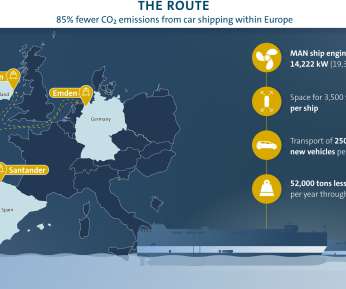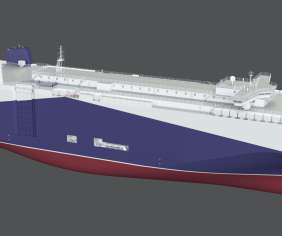Volkswagen fueling car carriers with fuel derived from used cooking oil; GoodFuels BFO
Green Car Congress
NOVEMBER 27, 2020
Volkswagen Group Logistics will be using certified fuel from vegetable residues for certain new car shipments via marine routes. This way, we reuse waste oil in an environmentally compatible way. With 85 percent lower CO 2 emissions than with conventional fossil fuels, the contribution to climate protection is enormous.











Let's personalize your content